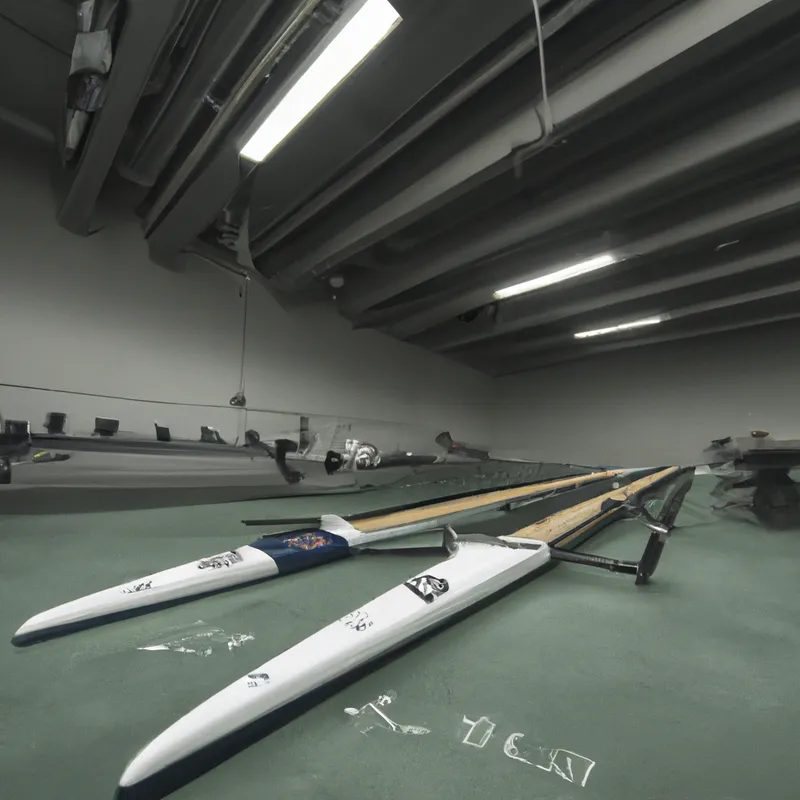Discover What Sets Elite Rowing Apart
The Differences Between College and Elite Rowing Programs
Rowing combines strength, endurance, and teamwork. Many athletes face a key decision: join a college rowing program or pursue elite rowing? Understanding these paths can help you choose wisely. This blog explores the unique features of college and elite rowing programs and offers tips for aspiring rowers.
Overview of College Rowing Programs
College rowing programs focus on developing student-athletes. They balance academics and athletics. Athletes compete in intercollegiate events like the NCAA Championships. College rowing emphasizes teamwork, commitment, and community.
Academic Commitments
College rowers juggle training with academic responsibilities. Most athletes take a full course load, which can be challenging. However, many colleges provide resources to help student-athletes succeed. Academic advisors and tutoring services support rowing students.
Training Environment
In college rowing, practices occur in the mornings and afternoons. Coaches build strong team dynamics. They incorporate team-building activities and social events. This environment fosters camaraderie and helps athletes develop important life skills.
Overview of Elite Rowing Programs
Elite rowing programs cater to competitive athletes. Their primary goal is training for national and international competitions. These programs often prioritize performance over academics. While some elite rowers attend college, many focus solely on rowing.
Intensive Training Regimens
Elite rowing programs feature rigorous training schedules. Athletes often train multiple times daily, six days a week. Coaches push rowers to reach their potential. This environment demands physical and mental resilience. Athletes must dedicate personal time to training.
Competition and Exposure
Elite rowers compete at national and international levels. Events like the World Championships and the Olympics serve as milestones. This exposure can lead to sponsorship opportunities and professional contracts. The competition is intense, and only the best rowers earn spots on elite teams.
Tips for Choosing Between College and Elite Rowing
Consider your long-term goals when deciding between college and elite rowing. Here are some helpful tips:
1. **Evaluate Your Priorities**: Determine whether academics or athletics take precedence. This decision will guide your choice.
2. **Research Programs**: Investigate various college and elite rowing programs. Understand their training philosophies, competition schedules, and academic resources.
3. **Seek Advice from Coaches**: Talk to current and former athletes in both paths. Their experiences provide valuable insights.
4. **Consider Your Commitment Level**: Elite rowing requires a higher commitment. Ensure you are prepared for the demands of an elite program.
Benefits of College Rowing Programs
Many athletes find success and fulfillment in college rowing. Here are some benefits:
– **Balanced Lifestyle**: College rowing allows athletes to pursue academics and sports.
– **Networking Opportunities**: Rowers often connect with future career benefits.
– **Personal Growth**: The college experience fosters independence and responsibility. Athletes learn valuable life skills beyond the sport.
– **Competitive Experience**: College rowing provides exposure to competitive racing and teamwork. This experience prepares athletes for future challenges.
Benefits of Elite Rowing Programs
Elite rowing offers distinct advantages for dedicated athletes. Consider these benefits:
– **Focus on Performance**: Elite programs prioritize athletic development. Athletes train with world-class coaches and resources.
– **Increased Competition**: Training alongside top athletes pushes you to improve. The competitive environment fosters growth and resilience.
– **Potential for Professional Opportunities**: Elite rowers may receive sponsorships or contracts with professional teams. This can lead to a career in rowing or related fields.
Conclusion
Choosing between college and elite rowing programs is a significant decision. Each path offers unique advantages and challenges. College rowing emphasizes balance, promoting academic and athletic success. In contrast, elite rowing focuses on performance, requiring intense dedication.
Reflect on your goals and priorities before deciding. Both paths can lead to personal growth and satisfaction. Whether you choose college rowing or pursue an elite career, stay committed to your passion. Embrace the journey and enjoy every stroke.
Below are related products based on this post:
FAQ
What are the main differences between college rowing programs and elite rowing programs?
College rowing programs focus on developing student-athletes who balance academics and athletics, competing in intercollegiate events. In contrast, elite rowing programs prioritize training for national and international competitions, often requiring a greater commitment to performance over academics.
What are the benefits of participating in college rowing?
College rowing offers a balanced lifestyle, allowing athletes to pursue academics while engaging in sports. It also provides networking opportunities, personal growth, and competitive experience that prepares athletes for future challenges both in and out of the sport.
What commitments are required for elite rowing programs?
Elite rowing programs demand intensive training regimens, with athletes often training multiple times daily for six days a week. This level of commitment requires physical and mental resilience, as well as a dedication of personal time to meet the high demands of the program.















Post Comment